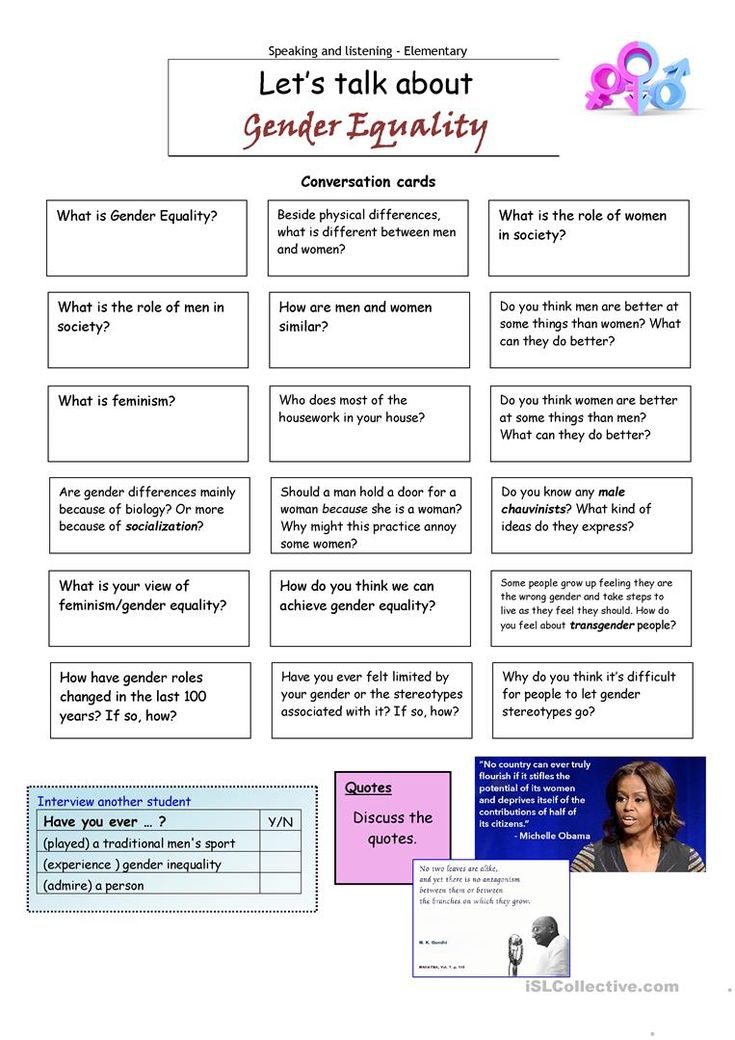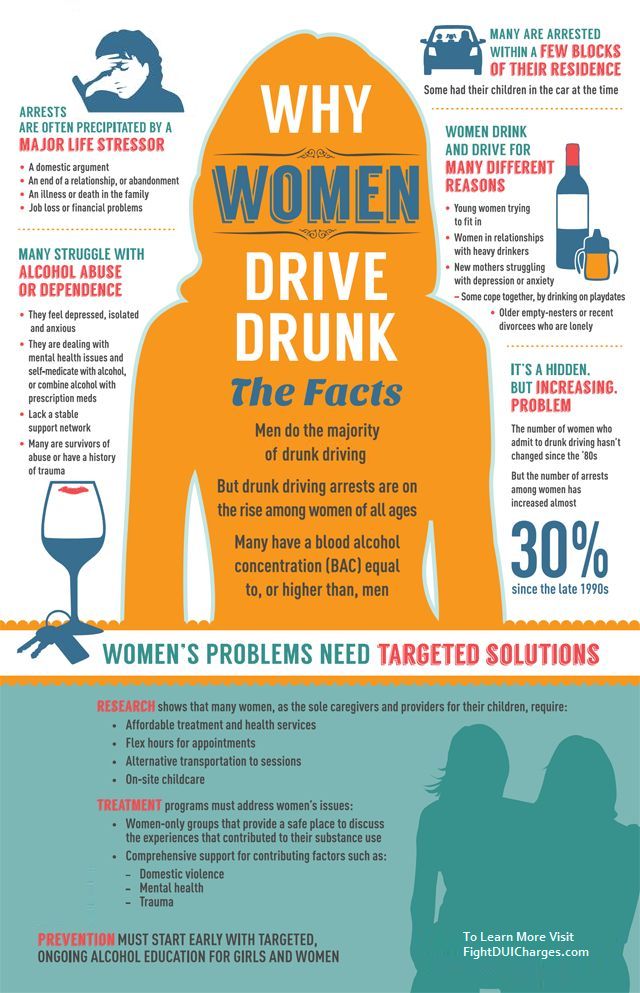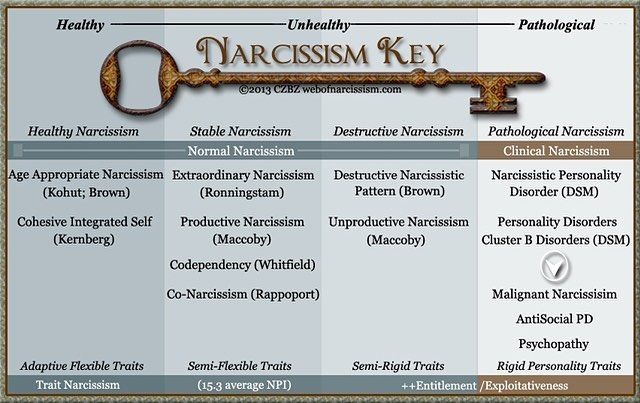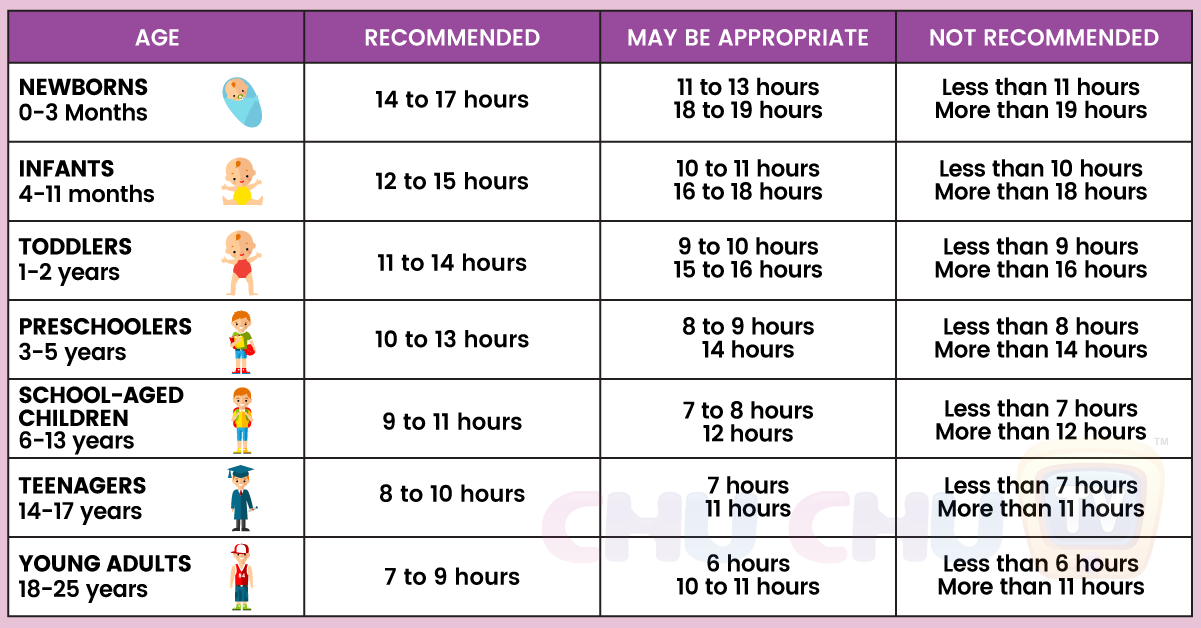Blood group type and personality
Can Your Blood Type Influence Your Personality?
The Japanese theory of ketsueki-gata seeks to explain personality traits via physiological factors, like blood type.
Personalities are uniquely composed of many different components, such as your creativity, social tendencies, and temperament.
Our personalities are what make each of us individuals. But if you believe in blood type personality theory, you might think that you share those traits with other people of the same blood type.
For centuries, scores of people worldwide have looked to astrology to attribute certain personality traits to the planets and stars. Is the idea of a link between blood type and personality so far-fetched?
This concept is attributed to “ketsueki-gata,” a Japanese theory that first surfaced in the early 20th century. And while this idea remains unproven by the scientific community, the blood type personality theory helped pioneer research connecting psychology to physiology and biology.
Blood type personality theory is a Japanese concept formally known as ketsueki-gata. This concept suggests that your personality traits can be linked to one of the four blood types in the ABO Blood Grouping System.
According to the theory, the surface differences of blood cells in each blood type can create different biological responses that create your personality.
Blood type personality theory was first introduced in 1929 when professor Tokeji Furukawa published “A study of temperament and blood-groups.”
In his research, Furukawa linked personalities to different blood types.
Furukawa presented preliminary statistics for his theory based on small population samples. After publication, the evidence was later questioned due to possible political influences and the too-small sample size used in the research.
The theory of blood type personality persisted, however.
It was brought to the scientific community a second time in the 1970s by independent researcher and journalist Masahiko Nomi.
In his report “Understanding affinity through blood type,” Nomi expanded on Furukawa’s concepts. He included data from multiple method approaches, such as:
- questionnaires
- surveys
- observation
- statistical analysis
Nomi added to the original blood type personality theory and suggested that blood type could be linked to disease or physical predispositions.
And like Furukawa’s work, Nomi’s report also came under heavy scrutiny for being uncontrolled and anecdotal.
Despite this criticism, his outline for blood type personality theory remains the basis for current models. It was maintained and publicized by his son, Toshitaka Nomi, until Toshitaka died in 2006.
Since this concept’s emergence in Japan in the late 1920s, the blood type personality theory has been the subject of many studies worldwide.
Currently, no scientific evidence supports a cause-and-effect relationship between a person’s blood type and personality traits.
Even using current investigative methods, a 2021 study examining blood type and personality demonstrated no significant correlation.
Is there any link at all between personality and blood type?
Though most studies have shown that blood type doesn’t directly influence personality, some experts still believe there may be more to the story than what’s flowing through your veins.
In 2015, a study looked at personality through the lens of a relationship between blood type and genetics.
According to the study’s authors, certain blood types appeared to have a greater genetic probability of producing chemicals in the body that may influence impulsivity and sensation-seeking.
In this way, researchers suggest that blood type may be tied to personality.
However, this doesn’t mean that blood type is a “cause” of personality development.
For this reason, this study’s authors urged caution when interpreting the results as the personality link to blood type could be considered minimal at best.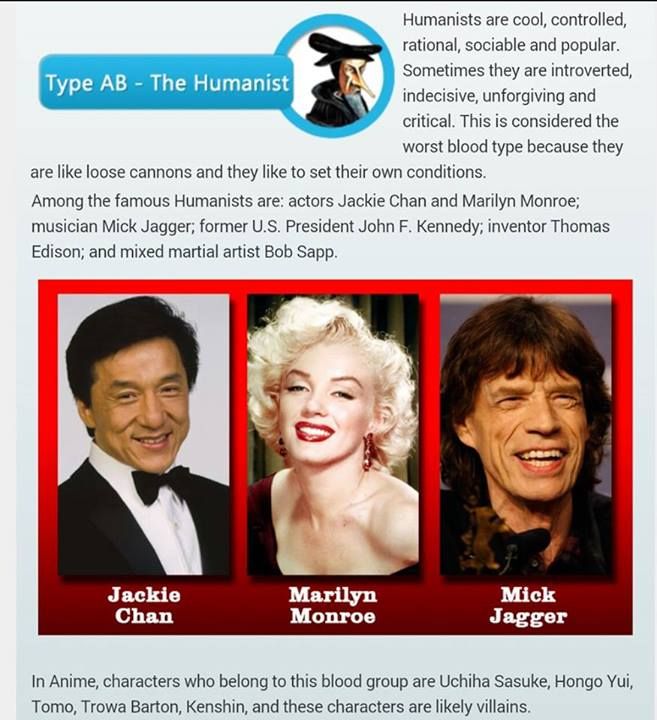
Despite the controversial nature of the blood type personality theory, Furukawa’s concept remains a widespread belief with many worldwide.
The blood type personality theory uses the ABO Blood Grouping System. This standard system categorizes blood types into four groups:
- blood type A
- blood type B
- blood type AB
- blood type O
Your blood type is determined by the presence of antigens, or surface markers, on your cells.
These markers communicate with your immune system to keep you healthy. They let your body know which cells are yours, which ones are harmless, and which ones don’t belong there.
When any invading cell enters your body your system flags as foreign, your immune system may attack it if it doesn’t recognize the surface markers.
This is why someone with type A blood can’t receive a transfusion from someone with B blood type: The surface markers on the blood types are too different.
Not only do your surface antigens help with your body’s immune response, but blood type personality theory also suggests they’re responsible for the traits you express via your personality.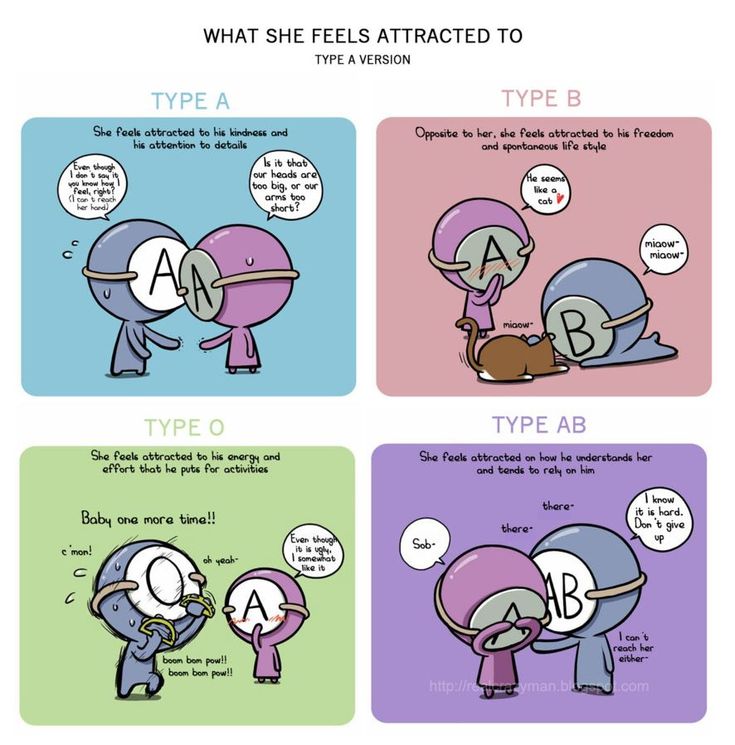
These traits may vary in significance from person to person and are often counteracted by opposing features.
Type O personalities, for example, are seen as kind-hearted, but they may also have moments where they come off as inconsiderate.
Blood type A personality traits
- clever
- loyal
- sensitive
- cooperative
- organized
- consistent
- creative
- stubborn
- deliberate
- reliable
- trustworthy
- nervous
Blood type B personality traits
- passionate
- carefree
- decisive
- empathetic
- erratic
- hyper-focused
- go-getter
- selfish
- uncooperative
- ambitious
- outgoing
- cheerful
Blood type AB personality traits
- popular
- caring
- dependable
- rational
- indecisive
- critical
- self-centered
- sociable
- composed
- forgetful
If you have type AB blood, the blood type personality theory indicates that you may have a mixture of the type A and type B groups.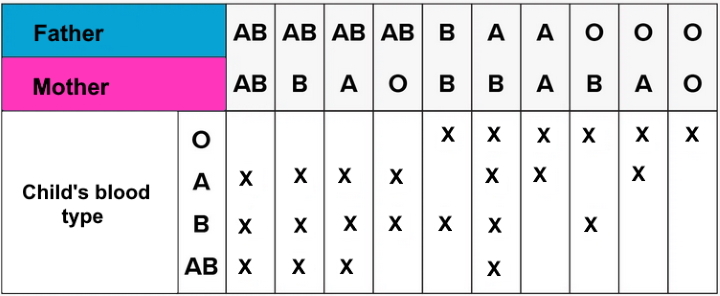
Blood type O personality traits
- confident
- intuitive
- outgoing
- generous
- kind
- optimistic
- jealous
- insensitive
- arrogant
- unpredictable
In his original work, Furukawa sought to explain psychological processes through physiological ones.
Pros
Though no evidence definitively shows blood type may directly create your personality, the physical processes in your body can impact your thoughts, feelings, and behaviors.
A chemical imbalance, for example, could create mood fluctuations. Because your mood is often attributed to your personality, it’s easy to see how they might be tied together.
Blood type personality theory may not be supported by scientific research, but it does bring attention to how the body can impact the mind and vice versa.
Cons
However, the downside of theories with large followings but no empirical backing is that they can often impact people’s lives without cause.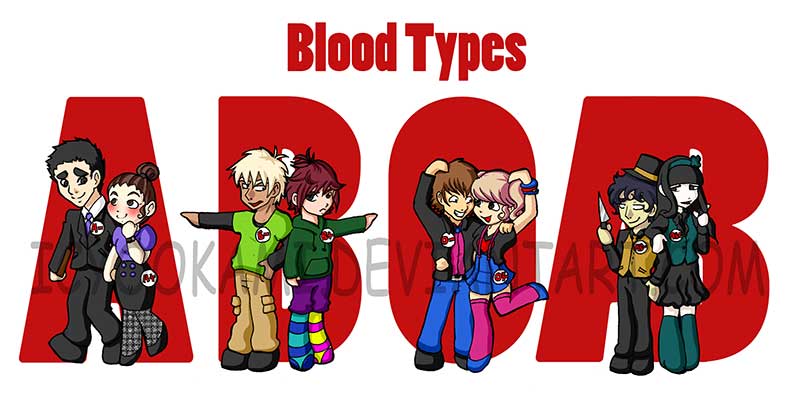
In Japan, for example, the blood type personality theory is still widely accepted. People may base many major life decisions on blood type, such as:
- marriages
- jobs and career choice
- political alignment
- social circles and alliances
Furukawa’s blood type personality theory has even brought about a cultural practice in Japan known as “bura-hara,” which is blood type discrimination or harassment.
Though there’s currently no scientific proof backing the idea that your personality might be directly influenced by your blood type, some aspects of physical health might be tied to your blood type.
Research from 2021 suggests that as many as 49 diseases could be influenced by blood type — and in particular, linked to ABO blood type.
Blood type personality theory, also referred to as ketsueki-gata, is the belief that a person’s personality may be directly influenced by their blood type.
Much like astrology might attribute certain personality traits to movements in the cosmos, blood type personality theory attempts to connect a person’s characteristics to a physiological cause — blood type.
According to this idea, people who share a blood type may be similar in personality and characteristics. The theory looks at blood types A, B, AB, and O as predictors of innate traits.
For example, if you’re blood type B, you may be more likely to have a personality that’s a bit more erratic or outgoing.
This theory was pioneered by Japanese professor Tokeji Furukawa in 1929 but was found to be scientifically dubious.
The theory was later championed again in the 1970s by Japanese researcher and journalist Masahiko Nomi. Nevertheless, the blood type personality theory remained heavily scrutinized by the scientific community.
While there’s no scientific evidence that supports a direct link between blood type and personality, your behaviors, mood, and mental wellness may all be impacted by biological processes.
Blood type personality theory may be considered pseudoscience, but that doesn’t mean it can’t be used as a good conversation starter or to explore self-discovery.
A Fun, Educational Look at Your Health and Personality
In honor of National Blood Donor Month, enjoy a bit of science and a drop of entertainment as we explore the implications of blood type.
Ketsueki-gata. It’s a term that may once have only been familiar to phlebotomists and vampires. But since the 1930s, ketsueki-gata has become a popular means of analyzing a person’s personality based on their blood type, thanks to Japanese professor Tokeji Furukawa. While there is no scientific proof tying blood types to personality types, Furukawa’s claims have been embraced in Japanese culture—much like astrology has been accepted in the U.S.*
From a Western health science perspective, the four primary blood types are differentiated from each other based on their antigens. Antigens are found on the surface of the red blood cells and help dictate how effectively our immune system works. The connection to immunology has had health education researchers making a correlation between personal health patterns and blood types for centuries.
Though you’re not likely to ever study the blood-related personality types in a health science degree program, it is fun to decide for yourself whether ketsueki-gata principles apply to you. Here is a quick look at the pros and cons of our own hemoglobin, according to Western medicine and ketsueki-gata.
Health Implications Associated With Blood Types*
| BLOOD TYPE | PROS | CONS |
|---|---|---|
| A | Mosquitos are less attracted to you than to other blood types | 20% higher change of developing stomach cancer compared with types O and B 5% increased risk of heart disease compared with type |
| B | Type B has 50,000 times the number of strains of friendly bacteria than A or O types | 11% increased risk of heart disease than type O AB or B women have a raised risk of developing ovarian cancer |
| AB | Type AB+ is the universal plasma donor | 23% increased risk of heart disease compared with type O Pregnant women are at an increased risk for developing preeclampsia |
| O | Type O can donate red blood cells to anyone Lower risk for pancreatic cancer Lower risk of dying from malaria | More likely to get ulcers Higher risk of rupturing an Achilles tendon Mosquitos are highly attracted to you |
Ketsueki-Gata Personalities Associated With Blood Types*
| BLOOD TYPE | PROS | CONS |
|---|---|---|
| A | Earnest, creative, sensible, reserved, patient, and responsible | Stubborn and tense |
| B | Passionate, active nature, creative, and strong | Selfish, irresponsible, unforgiving, and erratic |
| AB | Cool, controlled, rational, and adaptable | Critical, indecisive, forgetful, and irresponsible |
| O | Confident, self-determined, strong-willed, and intuitive | Self-centered, cold, unpredictable, and a potential workaholic |
Whatever level of credibility you might find in ketsueki-gata, if you’re serious about exploring health sciences or finding a career in the field of health education, you might consider earning an online health degree, such as an MS in Health Education and Promotion.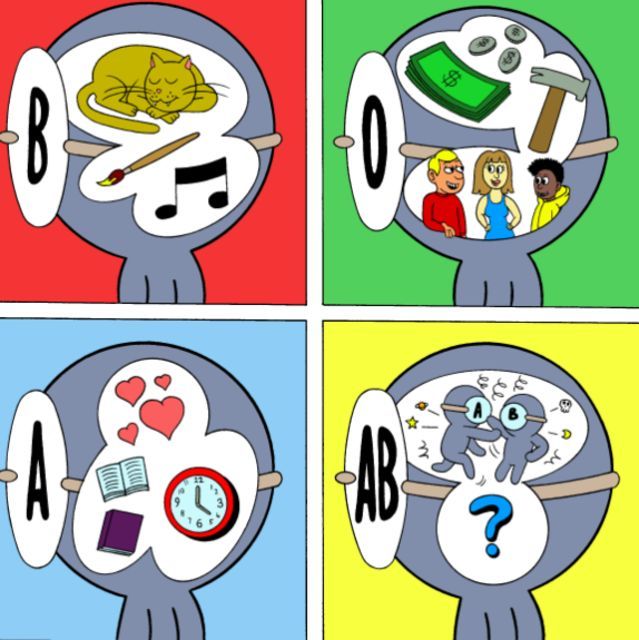 This degree can provide you with the skills and knowledge to make an impact on human health in multiple environments—including those we share with mosquitos. With an MS in Health Education and Promotion you can teach at a college of university, work as a researcher, or even take on the role of a consultant. Regardless, you’ll be helping others live a more healthy lifestyle.
This degree can provide you with the skills and knowledge to make an impact on human health in multiple environments—including those we share with mosquitos. With an MS in Health Education and Promotion you can teach at a college of university, work as a researcher, or even take on the role of a consultant. Regardless, you’ll be helping others live a more healthy lifestyle.
And regardless of whether you’re A, B, AB, or O, donating blood is always a positive contribution to your community.
*Mother Nature Network, “What Your Blood Type Says About You,” on the Internet at www.mnn.com/health/fitness-well-being/stories/what-your-blood-type-says-about-you.
Character by blood type
Character by blood type: YouTube/AdMe Nearly a hundred years ago, Karl Landsteiner received the Nobel Prize for discovering blood types. However, the character of a person could not yet be determined by them. This connection was discovered by Japanese scientists, and since then the technique has been used all over the world.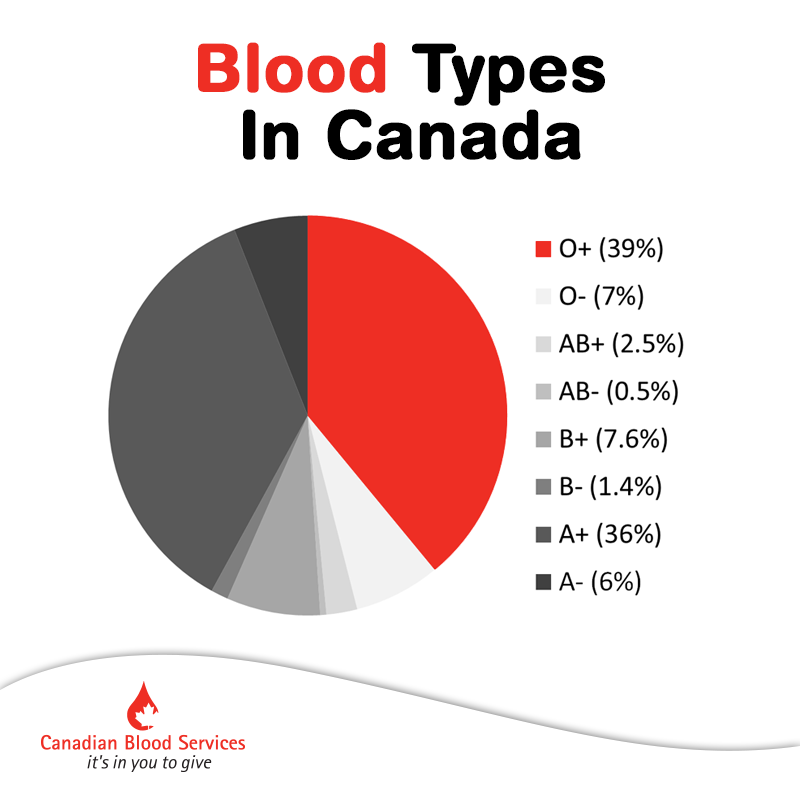 Use the information to understand yourself and your environment.
Use the information to understand yourself and your environment.
Group I (O+ and O-) — "hunters"
The theory of the relationship between blood type and character says: everything started with them - with the owners of the first blood group. These people laid the foundation for evolutionary processes, managed to survive in the difficult conditions of the Stone Age and gave strong offspring. nine0005
"Hunters" had to rely on primitive, natural instincts, as well as demonstrate determination in achieving goals. They didn't care about yesterday, they strove for the future.
Current descendants with the first blood group demonstrate the bright features of their ancestors:
- energy and self-confidence;
- lack of fear of any obstacles, enterprise;
- purposefulness and the ability to go forward to the end.
They are born leaders. They need specific goals in order to take the most desperate steps to achieve them. They are stubborn and independent, have an innate instinct and know how to choose the best option from those offered by fate.
They are stubborn and independent, have an innate instinct and know how to choose the best option from those offered by fate.
Their shortcomings:
- They cannot stand criticism.
- They do not know how and do not like to obey.
- It is almost impossible to change your mind about anything.
- Change of environment is hard to bear.
A strong character allows "hunters" to take a leading position in life and in business. Monotonous work, lack of competition and space for growth tire them. Some representatives need a drive, an opportunity for development. nine0005
When it comes to business matters, they see only boredom and routine. Of course, they put up with the fact that they need to be solved, but only for the sake of a comfortable life.
In relations with the opposite sex, representatives of the group demonstrate jealousy, possessiveness. But all the shortcomings are more than compensated by their endless tenderness and care for a partner. "Hunters" are sensitive and sensual, love earthly pleasures and know how to build harmonious relationships on the principles of equal exchange.
"Hunters" are sensitive and sensual, love earthly pleasures and know how to build harmonious relationships on the principles of equal exchange.
Group II (A+ and A-) — "farmers"
By blood group character can be determined: PixabayRepresentatives of the second blood group are cold-blooded, balanced, sensible people. External simplicity is a mask under which a multifaceted personality is hidden. Very conscientious in any work, although they can do it too slowly. Of the shortcomings, we note such as:
- the tendency to give up one's opinion, choosing someone else's;
- excessive pettiness and scrupulousness; nine0016
- inability to relax and risk panic if things don't go according to plan.
"Farmers" are secretive and are not in a hurry to turn their souls inside out, but they are able to analyze the situation, carefully observe and draw conclusions. They do not allow emotions to take over the mind, they rely on themselves in everything and will not once again ask for help, although they are always happy to rush to help others.
Unfortunately, they do not grow into leaders, but they are excellent performers, on which the entire structure of most companies rests. They will never let you down and will do everything that depends on them to solve the task. nine0005
Some aloofness makes them mysterious individuals who want to get to know better. Here are the positive character traits of the group's representatives:
- Loyal friends and associates.
- They collect other people's secrets, but they never give them away, often they are a "vest" for friends.
- Do not use people's weaknesses against them.
- Non-confrontational, prone to compromise, kind and responsive.
Rare fits of irritation and isolated outbursts of rage demonstrate the inner fire of the "farmers". They also indicate that such people are very good at sex, despite seeming restraint. nine0005
They are very fond of order and cleanliness in the house, that's why they are also called "brownies" or "housekeepers". They are patient in building relationships and will listen to a partner, yield to him without strain and blackmail. Loyal and loving, "farmers" seek to meet their man and rarely break off relationships on their own initiative.
They are patient in building relationships and will listen to a partner, yield to him without strain and blackmail. Loyal and loving, "farmers" seek to meet their man and rarely break off relationships on their own initiative.
Group III (B+ and B-) — "nomads"
People with different blood types have common features: Pixabayrare tricks. They are also called "nomads" or "wanderers" because of the permanent thirst for change. Their characters combined the strongest features of the first two groups. nine0005
They are distinguished by the following qualities:
- easily adapt to any conditions;
- they cannot be driven into a dead end;
- know how to establish contact with any people;
- purposeful and confident;
- are intelligent and emotionally sensitive.
These people love a change of scenery, are restless and believe that they need to travel around the whole world, or at least half of it. Often they succeed, how to achieve everything in life.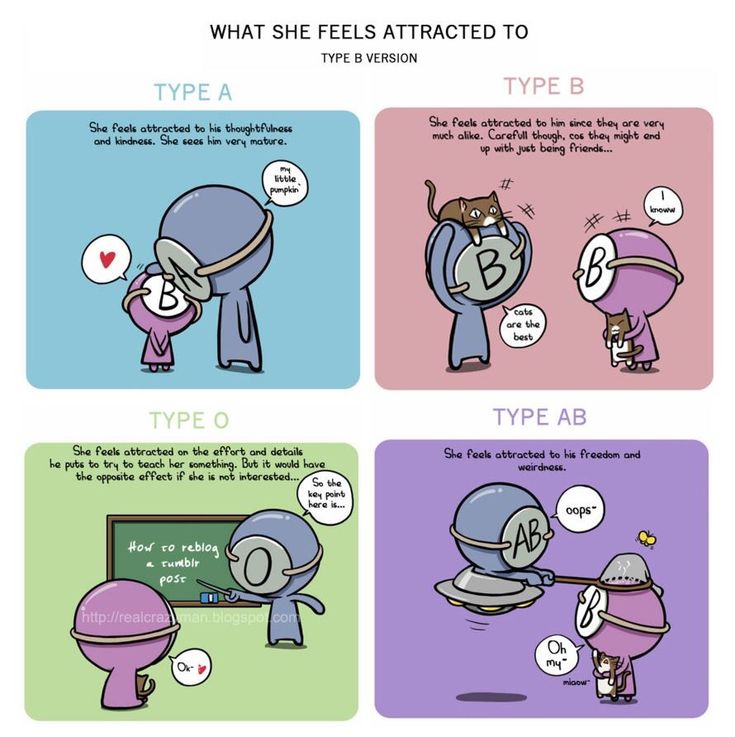
In the process of evolution, "nomads" have developed the ability to maintain balance. They prefer not to get involved in conflicts, feeling the fine line between good and bad. Sharp intuition turns them into wise advisers, people look for support in them. Great friends, they know how to keep their word. nine0005
Character flaws include:
- excessive vulnerability and sensitivity;
- excessive talkativeness and intrusiveness;
- attempts to hide from people, and outwardly demonstrate otherwise;
- a tendency to dramatize in love — they can suffer endlessly for those who did not choose them.
Representatives of the third group are endowed with creative talents and can be realized in the field of art. They will suit the profession of a designer, builder, writer, actor. They can manage people, they are not afraid of responsibility. nine0005
In a relationship, they look for their soul mate for a long time, they often fall in love with the wrong ones.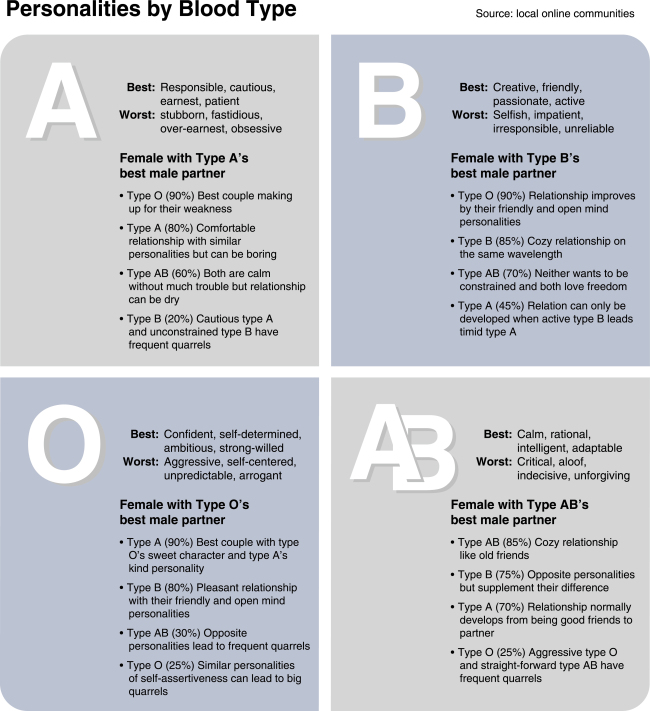 Having chosen the right party, they are ready for anything to maintain relationships. Such people make good parents and spouses.
Having chosen the right party, they are ready for anything to maintain relationships. Such people make good parents and spouses.
Group IV (AB+ and AB-) - "inventors"
They were not called inventors for nothing, as well as philosophers and sages. By nature, they are very intelligent, sociable and friendly. They love to joke, including on themselves. They combined the main character traits of people of the second and third blood groups. nine0005
After weighing all the pros and cons for a long time, wise "inventors" can slow down in making decisions, but rarely make mistakes. Most of all they are loved for:
- charm and ability to arouse interest;
- the ability to be loyal friends;
- lightness and love for fun;
- that they do not boast of status, intelligence or merit.
These people love and know how to sympathize and empathize, real altruists. They have angelic patience, although no one is allowed to sit on their neck.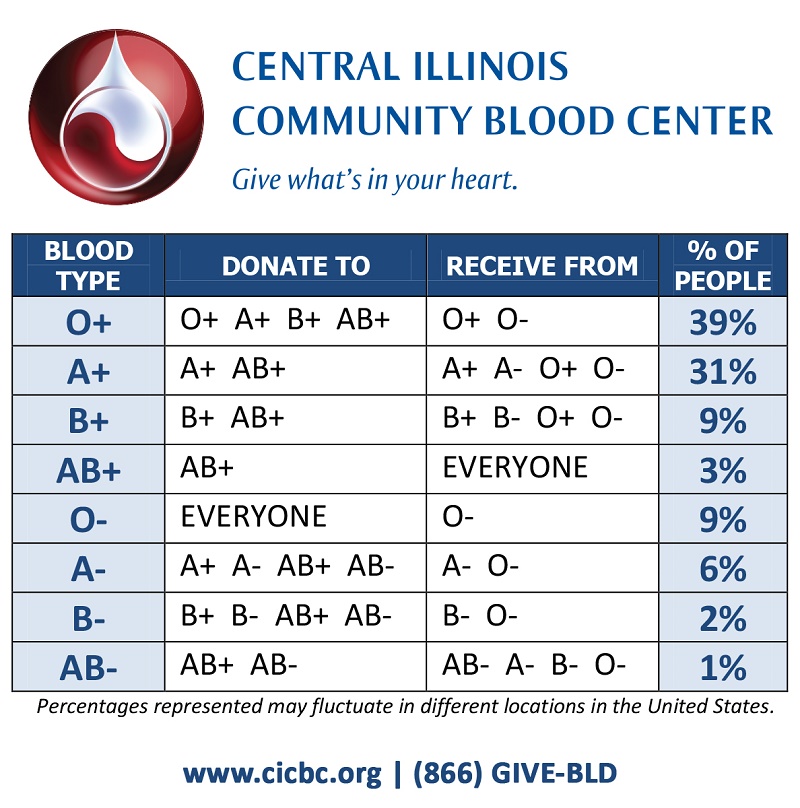 If you strongly offend the "inventors", then unpleasant, but very precise words will be heard against the offender, which hurt pride painfully. nine0005
If you strongly offend the "inventors", then unpleasant, but very precise words will be heard against the offender, which hurt pride painfully. nine0005
They also have negative traits:
- They often doubt themselves, tend to introspection.
- Can chew past negative events for a long time, trying to analyze mistakes.
- They know how to perfectly pretend and lie (sometimes this becomes a plus).
"Inventors" love their partners very much. At the beginning of a relationship, they are even ready to forgive the betrayal of a loved one in order to stay together. But if later they meet someone more worthy and understanding, then, without waiting for a confession of guilt from a partner, they will leave. They burn bridges, turning into cold exes, with whom it is difficult to agree on the division of property and custody of children. nine0005
They know how to live the way they want, they make people laugh, it's easy and comfortable to be with them. Such people follow intuition, therefore they become like clairvoyants: too often they are right in everything.
Such people follow intuition, therefore they become like clairvoyants: too often they are right in everything.
The characters of each blood group are unique, although they share common features. It is not surprising, because the relationship between the blood index and the human essence is based on the theory of evolution. Track the characteristics of your group and learn to apply this knowledge when communicating with other people.
Original article: https://www.nur.kz/esoterics/interesting/1626169-gruppa-krovi-kharakter-cheloveka/
How to find out the character of a person by blood group
Many people try to find out the zodiac sign of a person they like, not only to check compatibility by horoscope, but also to learn more about his character. If you secretly look at astrological sites, but are still skeptical about the advice of the stars, trust the natural sciences! It turns out that a person's blood type can tell a lot about a person's personality.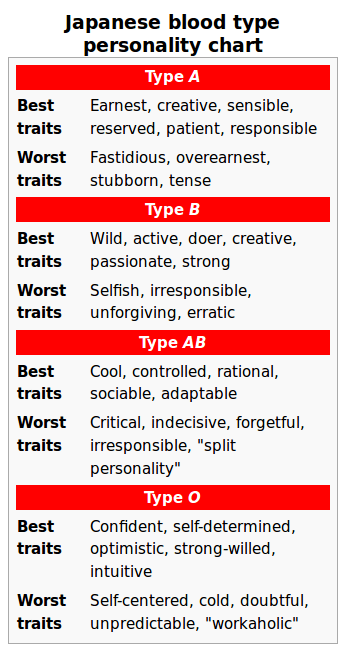 nine0005
nine0005
Grazia
Tags:
Evergreen
It is believed that a person's character directly depends on the blood type with which he was born. This idea is so ingrained in Japanese culture that the first thing people do when meeting people is interested in the blood type of the interlocutor. However, today there is not enough evidence to support this hypothesis. Let's check it out together?
What does your blood say about you? nine0005
There are 4 blood groups that remain unchanged throughout life:
- I (0)
- II (A)
- III (B)
- IV (AB)
O)
People with the first blood group in most cases are open to communication, attentive and purposeful. Hardworking, they set high goals for themselves and do everything possible to achieve them. These persons are born leaders and leaders. Often they are indifferent to trifles, so sometimes they look like egoists with low emotional intelligence in the eyes of others. nine0005
These persons are born leaders and leaders. Often they are indifferent to trifles, so sometimes they look like egoists with low emotional intelligence in the eyes of others. nine0005
People with the first blood type are generous and sympathetic. They easily adapt to changes due to their flexibility, endurance and stress resistance. The only thing these people can't stand is lies and the deliberate suppression of the truth.
The most famous representatives of this blood type are Elizabeth II, Elvis Presley, Paul Newman and Ronald Reagan.
People with the second blood group (A)
The owners of the second blood group are distinguished by a sharp mind and passionate passion for their work. At the same time, they are very vulnerable and empathic. Nature has rewarded such people with a whole range of positive qualities: fidelity, calmness, prudence and tranquility. They know how to create harmony around themselves and share positive energy with others. nine0005
nine0005
Rules of etiquette and social norms are key guidelines for the owners of this blood type. They value adherence to established boundaries and react very harshly to people who can afford to violate generally accepted guidelines and rules.
In matters relating to work and duties, these persons are very responsible. They are hardworking and attentive to all details. However, people with the second blood group often have problems when it comes to multitasking and managing emotions in stressful situations. nine0005
It is known that Britney Spears, Richard Nixon and George W. Bush have the second blood type.
People with the third blood group (B)
People with the third blood group have a highly developed right hemisphere of the brain, which is responsible for creativity. They make decisions quickly and dedicate themselves fully to the cause, even if it seems that it is absolutely unrealizable.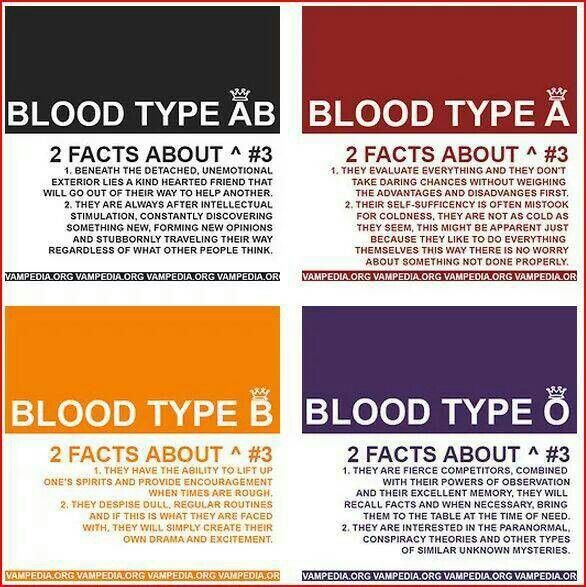 Whatever these persons undertake, the most important thing for them is to bring any undertaking to perfection. However, in pursuit of the ideal, the owners of the third blood group tend to neglect the daily important things, focusing entirely on projects that interest them at the moment. nine0005
Whatever these persons undertake, the most important thing for them is to bring any undertaking to perfection. However, in pursuit of the ideal, the owners of the third blood group tend to neglect the daily important things, focusing entirely on projects that interest them at the moment. nine0005
People with the third blood group are attentive and empathic. They always try to listen to the opinions of others and rarely enter into confrontations with others. These are the real and true friends!
Nevertheless, others often pay attention to their love for themselves, while cheerfulness, sociability, humor and resourcefulness sometimes remain in the shadows. For this reason, many owners of the third blood group close in themselves.
Jack Nicholson and Leonardo DiCaprio are among the most famous people with the third blood type. nine0005
People with the fourth blood group (AB)
These people combine the traits inherent in the owners of the second and third blood groups.

